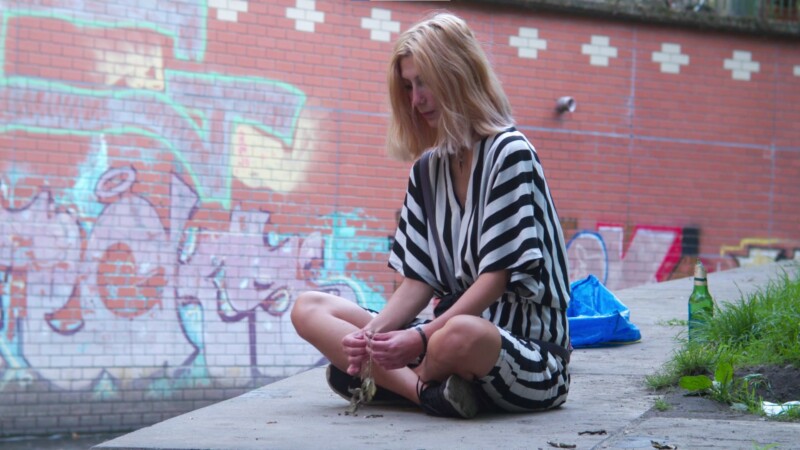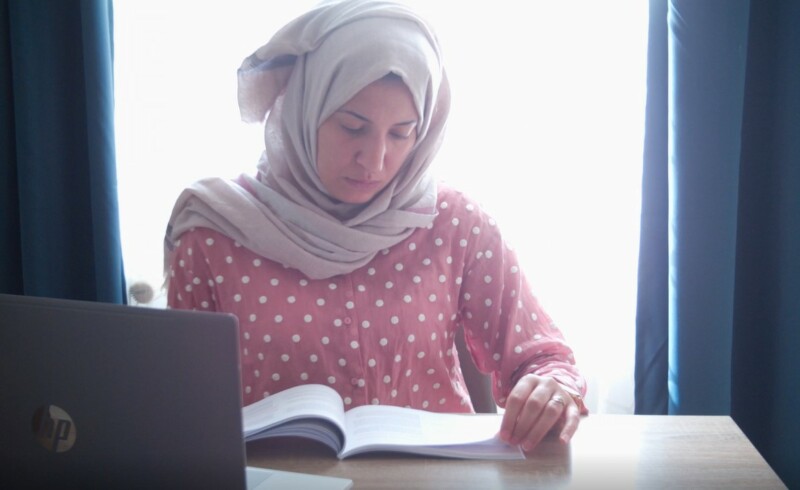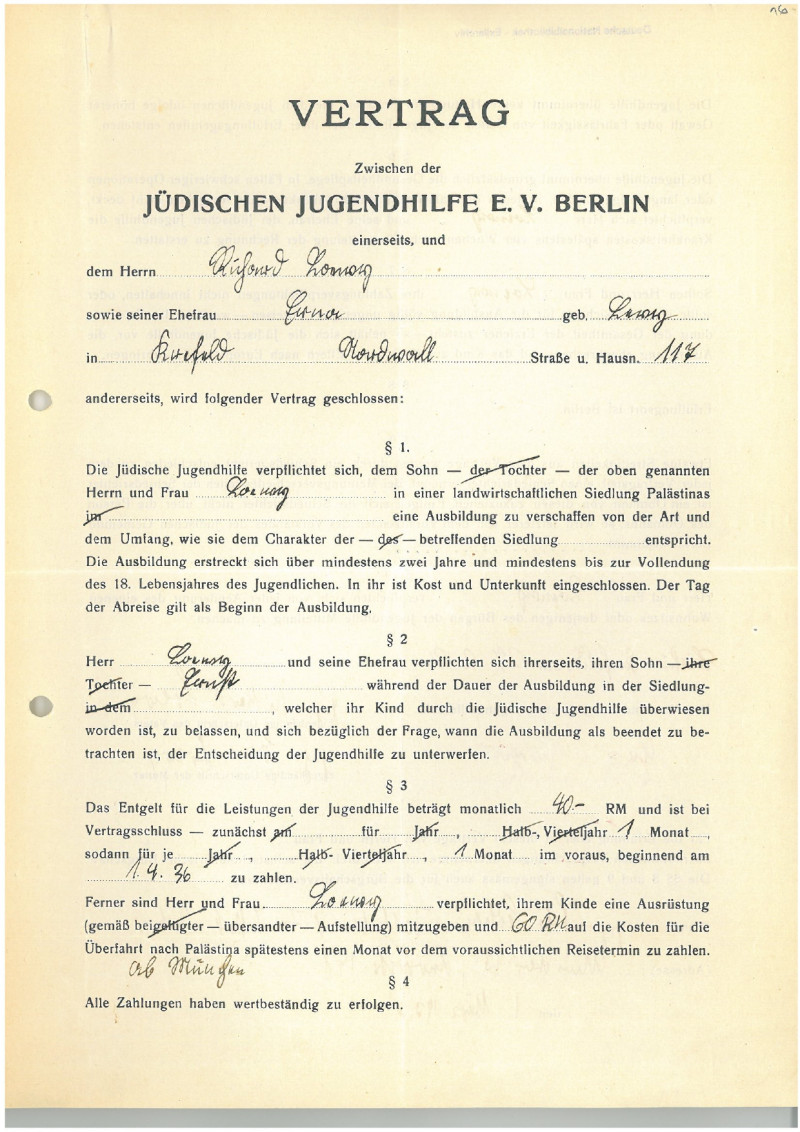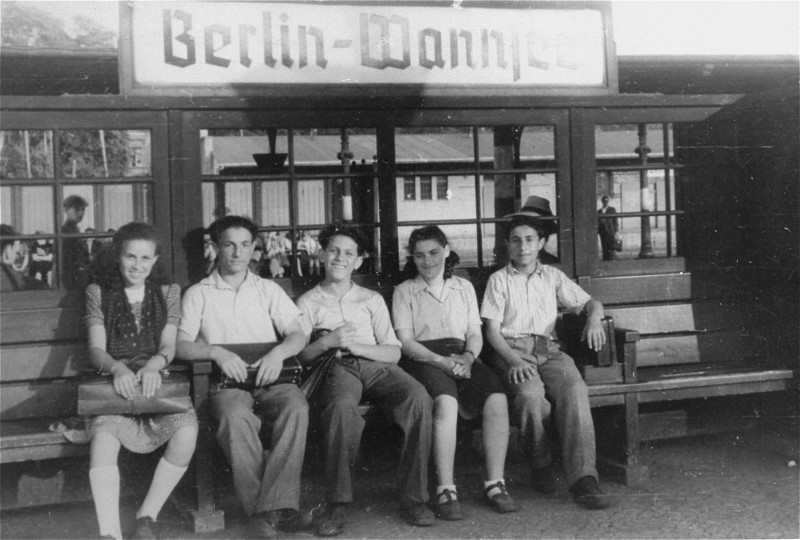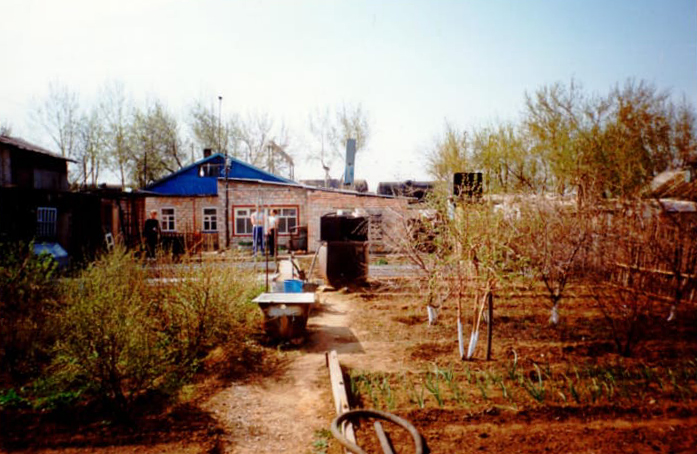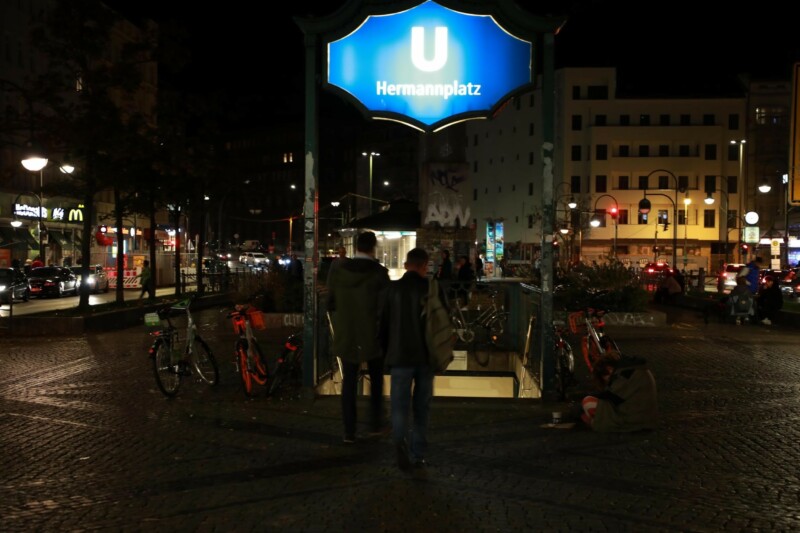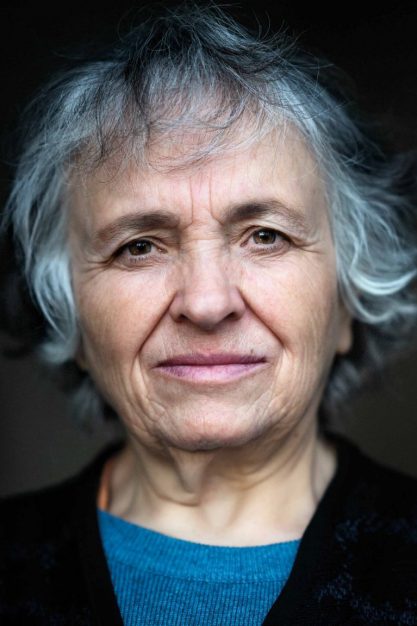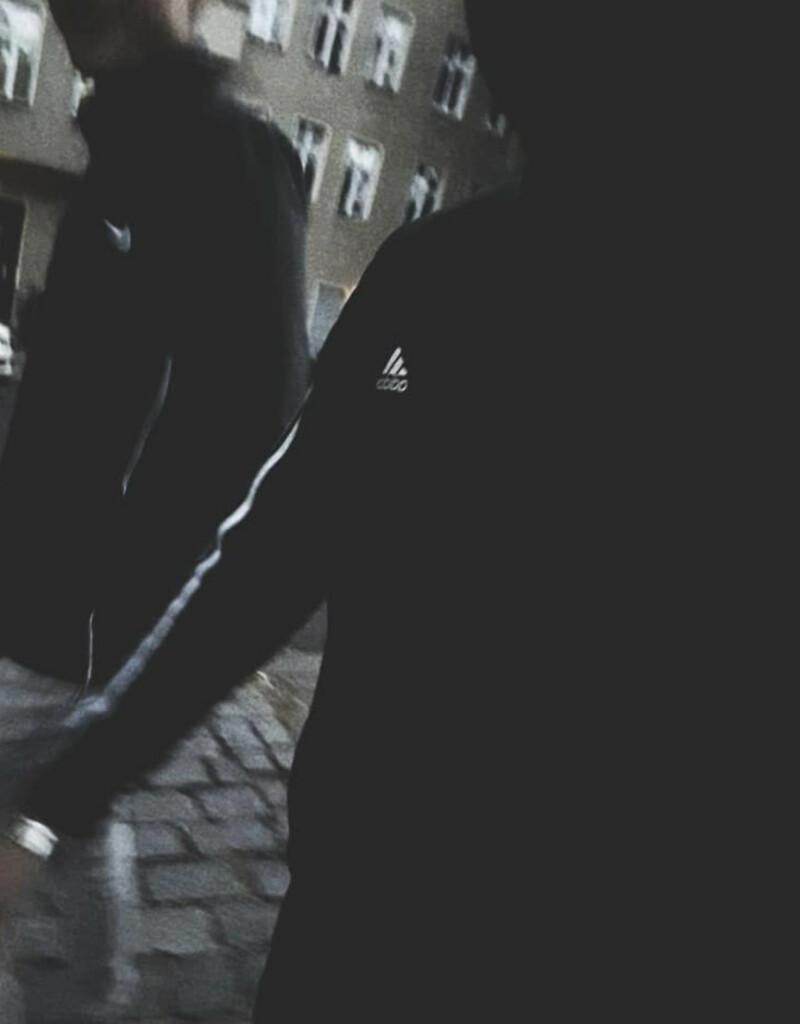Noa Ha, Acting Scientific Director at the German Center for Integration and Migration Studies (DeZIM), also writes in her article for We Refugees Archive: “The logic of border security can be observed not only at the EU’s external borders, but also within European cities.” As examples of such border-securing processes, she cites, among others, racial profiling or the so-called “Residenzpflicht” – procedures that produced a “life-threatening edge” in the middle of cities.
Another important example through which border maintenance processes can be identified within a society is represented, especially in Western Europe, by the debate on the integration of immigrants. Although the term “integration” usually stands for inclusion in a larger whole, in the view of sociologist Willem Schinkel, the concept of integration serves a society primarily to maintain its borders, achieve social closure, and purge it of “unwanted elements”.
In her essay “We Refugees,” Hannah Arendt describes how a person can lose their identity along with their nationality. The importance of belonging to a community for one’s own identity applies not only to individuals, but also to the self-image of a society: Who is a part of it and who is not? The matter of integration can be helpful in answering this question by simplifying it: On the one hand, there is the nation as an imagined community. Whoever is born into it is automatically a part of it. On the other side are “strangers”, i.e. immigrants and refugees, who do not belong to it because they are new and thus have to prove their belonging first; they have to be integrated and actively integrate themselves. Such a notion of belonging can thus only be generated and maintained in the first place by excluding the “foreign” and problematizing immigrants as its counterpart. Hannah Arendt reflects these mechanisms of exclusion when she rejects the concept of the refugee as an ascription of foreignness.
Diawara B. also tells impressively about such exclusion procedures in his contributions in the We Refugees Archive. He grew up in Mali and worked for some time in Algeria before coming to Sicily as a minor in 2016. He now lives in Palermo, but his residency status is uncertain. When he cites Italian security decrees as an example in this article, he makes it clear: such border security procedures have negative consequences for both sides across the border: “(…) both for those who are citizens and for those who are foreigners.”
As long as the state’s self-image is aligned with the concept of integration, it will only ever provide an answer to the question of who does not belong. Such a demand for integration is not aimed at success. How are people supposed to live up to it?
Kefah Ali Deeb, who came to Berlin from Syria in 2014 due to political persecution, appropriately describes these challenges as an “integration dilemma” in her article: In order to integrate, she is supposed to work. If she works, she no longer has time to learn German. If she does not speak German, she is accused of not integrating herself enough. This almost unmanageable simultaneity of demands becomes clear, for example, in the text “Det is Berlin”, when the author compares this jumble of expectations to a train that rattles on and on and never comes to a stop. For when should and can such an integration process be completed?
From the perspective of Sarah Wright, professor for Geography and Development Studies at the University of Newcastle, belonging is not merely a status “one can hold (or not).” Belonging can be experienced as well as practiced, it is composed of a whole series of practices and processes and is continuously (re)produced. Accordingly, integration also has no fixed starting and ending point, and it is not demanded once, but again and again under constantly renewed conditions by the majority society. The arbitrariness that results from such an unstable understanding of integration and belonging is also reflected in many archive contributions in which the authors describe their own experiences. Diawara B. describes in one text all the efforts he has made to integrate himself:
“I am at this moment without documents and in Palermo there is nothing I haven’t done to integrate, the language, social activities, artistic things, I have done everything.”
What all these efforts have brought him is, above all, the realization that his aspirations lead nowhere; his integration will never be complete:
“But at the same time, I am on the side of those who do bad things, and they are denied documents. And I am on that side, but I have done everything. I have helped people, I have helped myself, I have integrated in every way, 360 degrees. But I am without documents just because I don’t have a passport. So my identity is no longer that of Diawara B., all the work I have done to integrate no longer counts. My identity always remains that of the migrant. […]”
His narrative echoes Hannah Arendt’s conclusion that the designation “refugee” paves the way toward stigmatization as a “hostile foreigner” and undermines identity. No matter what Diawara B. tries, he remains on the bad side. As part of the group excluded from national society, he involuntarily contributes to maintaining the self-image of the state, which can thus define itself as the counterpart of the excluded group: As a moral, purified entity.
In addition to the questions of who benefits from integration and to what extent it can succeed, there is also the question of what this larger whole is actually supposed to be, into which integration is supposed to take place. For Willem Schinkel, societies do not exist in themselves, but always in relation to the prevailing ideas about them: “For a society to exist, to have effects, and to make a difference, it needs to be imagined”. Such a national society is usually imagined not only by distancing from the “other,” but also as based on certain shared fundamental values , in Germany, for example, on freedom and equality before the law. But under what conditions can a person claim to agree with these values? And how should they prove this agreement? [10. Das deutsche Staatsangehörigkeitsrecht wurde in den letzten Jahren reformiert, seither müssen Einbürgerungsbewerber u. a. ausreichende Kenntnisse der deutschen Sprache vorweisen, sich zur freiheitlichen demokratischen Grundordnung des Grundgesetzes bekennen und eine Loyalitätserklärung abgeben. Seit September 2008 müssen sie außerdem einen Einbürgerungstest absolvieren. Mit diesen Änderungen solle „dem gewachsenen Stellenwert der gesellschaftlichen Integration“ Rechnung getragen werden. [11. Bundesministerum des Innern, für Bau und Heimat: Staatsangehörigkeitsrecht: Reformen des Staatsangehörigkeitsrechts: Einführung des Geburtsortprinzips und weitere Reformen im Jahr 1999. Online: https://www.bmi.bund.de/DE/themen/verfassung/staatsangehoerigkeit/staatsangehoerigkeitsrecht/staatsangehoerigkeitsrecht-node.html (31.03.2021).
In Germany and many other countries in Western Europe, it is assumed that such a commitment to basic democratic values results qua birth. Many of the contributions to the archive rightly criticize this assumption as naive. In “Det is Berlin,” for example, the author asks, “Today everyone talks about values and principles, but who still sticks to values and principles?” Kefah Ali Deeb asks a similar question, referring specifically to the concept of integration: “Are really all Germans integrated? What does integration really mean? Can someone please explain it to me in such a way that I can also participate?” In “Det is Berlin,” the author fundamentally questions those values that are supposedly held so dear in Germany:
“‘Det is Berlin.’ Yes, actually, that is Berlin. Here the train doesn’t wait for you in the morning when you’ve overslept. Nobody cares if you overslept the morning on purpose or had something else in mind. No one will or wants to know.”
Whether of a personal or theoretical nature, the above-mentioned thought-provoking ideas have one thing in common: They show that a national self-image that is based on integration is highly fragile. A society that truly strives for equality needs a new self-concept that sees immigrants not as its counterpart, but as its foundation. Noa Ha aptly states at this point:
“There are enough experiences with flight and migration in this country that could be used now. (…) For example, the wars in former Yugoslavia, the intergovernmental agreements on so-called guest and contract workers, but also colonial rule brought people into the country. (…) The experiences are bundled in the diverse self-organizations of migrants. For decades, they have been working for an intercultural self-understanding of Germany as a country of immigration.”
Literature:
Arendt, Hannah, 2016: Wir Flüchtlinge. Mit einem Essay von Thomas Meyer. 5. Aufl. Stuttgart: Reclam. (amerik. Original 1943)
Homepage of the Federal Ministry of the Interipr, Building and Community: Citizenship: Citizenship Law Reforms: Introduction of the Birthplace Principle and Further Reforms in 1999. (Last accesed on March 31th, 2021))
Friese, Heidrun (2017): Die Grenzen der Gastfreundschaft. Die Bootsflüchtlinge von Lampedusa und die europäische Frage. Bielefeld: transcript
Schinkel, Willem (2017): Imagined societies : a critique of immigrant integration in Western Europe. New York: Cambridge University Press.
Wright, Sarah (2015): More-than-human, emergent belongings: A weak theory approach. Progress in Human Geography, 39 (4), S.391-411
Yuval-Davis, Nira; Wemyss, Georgie; Cassidy, Kathryn (2019): Bordering. Cambridge: Polity.
This essay was written and translated into English by Clara Zink as part of a cooperation between Freie Universität Berlin and the We Refugees Archive.
Under the supervision of Prof. Schirin Amir-Moazami, students in the seminar “Narratives of Refugees in the Light of Border Regime Studies” (winter term 2020/21) worked on critical methods of qualitative social research as well as literary and scientific texts on the topic of border regimes. Border regime studies primarily focus on the political, economic and legal conditions that produce migration and borders as social phenomena in the first place.
In cooperation with the We Refugees Archive, the seminar participants conducted interviews with refugees about their everyday experiences in Germany or wrote articles on the common topics of the seminar and the archive.
